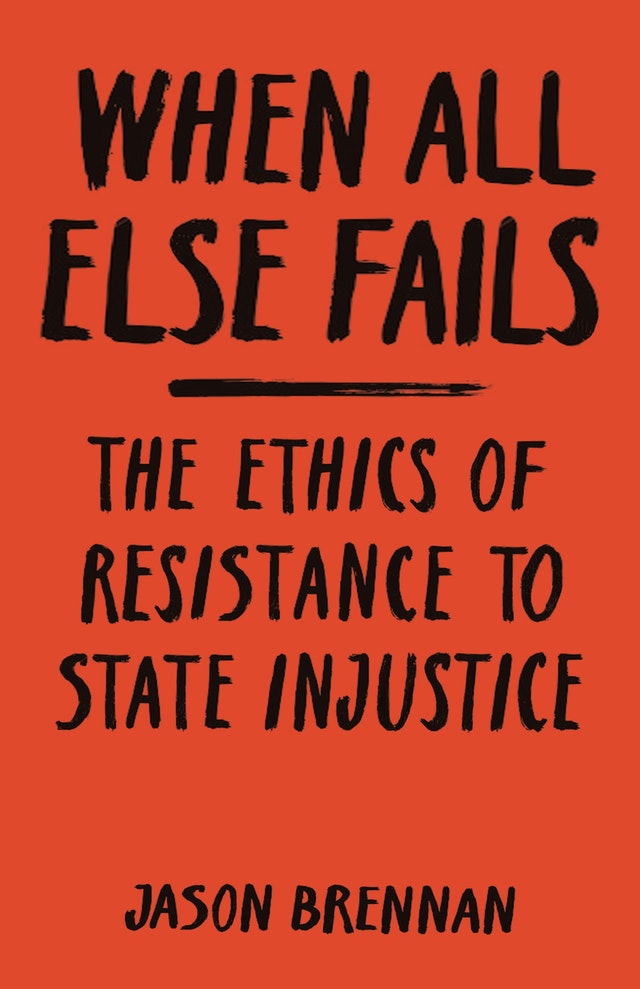What do you think?
Rate this book


287 pages, Kindle Edition
Published December 11, 2018
[Imported automatically from . Some formatting there may not have translated here.]
Jason Brennan is an iconoclastic and wide-ranging scholar. According to his , he "specializes in politics, philosophy, and economics." (Um, that's not what most people mean by "specialize", Professor Brennan!) I read his contrarian book , and I liked it quite a bit. So I had the good Interlibrary Loan folks at the University Near Here wangle me a copy from Boston College. And…
Here's the issue: Generally, we know that violence against other people is wrong. So is lying and sabotage. But there's an important exception: we (again, generally) accept that it's okay to use violence, even deadly violence, not only in self-defense, but in defense of others. And it's okay to lie to an abusive husband if you're hiding his wife: "No, man, she's not here." And it's okay to disable the bank robber's getaway car.
But some people think there's an exception to that: if the evildoers are government employees, acting ex officio, they have a magic immunity against interference.
Brennan argues against that exception: his claim is that you have pretty much the same right to thwart rights-violating agents of the state as you would civilian villains. Including, if necessary, the right to use deadly violence against them. There's no reason to think they have that magic immunity.
The argument is developed with the care you would expect from a philosopher. Brennan first examines your "right" to resort to (otherwise) bad behavior in response to injustice: when does it work, when doesn't it, and what are the limits? He then makes a powerful observation with much broader implications than his limited thesis here: in thousands of years of trying, political philosophers have entirely failed to come up with good arguments establishing the rightful authority of the state against its citizenry. (This is a separate and independent argument from whether established governments are legitimate; Brennan argues against the authority of even legitimate states.)
You probably have a host of objections and worries to Brenan's thesis. A bunch occurred to me as well. But he does a pretty thorough job of anticipating and replying to them. (If you'd like a article-sized summary, it is, from the January 2019 issue of Reason.)